Events
| Name | organizer | Where |
|---|---|---|
| MBCC “Doing Business with Mongolia seminar and Christmas Receptiom” Dec 10. 2024 London UK | MBCCI | London UK Goodman LLC |
NEWS

UN experts on arbitrary detention visits Mongolia www.news.mn
The UN Working Group on Arbitrary Detention arrived in Mongolia for an official visit on 3-14 October 2022, to assess the country’s situation regarding the deprivation of liberty.
The delegation – comprising two members of the Group, Elina Steinerte and Matthew Gillett – will visit Ulaanbaatar as well as other parts of the country. They will meet Government officials, civil society groups and other relevant stakeholders during the visit.
The experts will also visit places of deprivation of liberty, including prisons, police stations and institutions for children, migrants and people with psychosocial disabilities, to gather information for their assessment.
The Working Group will share their preliminary observations at a press conference on 14 October 2022, at 12:00 local time, at the Conference Room of the UN House building, in United Nations Street 14, Ulaanbaatar, Mongolia. Access will be strictly limited to journalists.
The Working Group will present its final report on the visit to the Human Rights Council in September 2023.
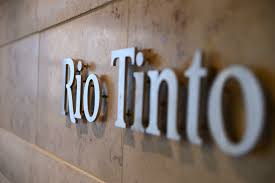
Rio Tinto Mongolia partners to create green space in the National Amusement Park of Ulaanbaatar City www.riotinto.com
Rio Tinto Mongolia has today signed a Memorandum of Understanding with the Mayor’s Office of Ulaanbaatar City and National Amusement Park LLC to undertake a restoration project in the National Amusement Park.
Under the partnership, Rio Tinto Mongolia will restore 10 hectares of land, between the Children’s Palace and the Sun Road, located in the western section of the National Amusement Park. The project will create a new green space, with additional facilities for people to enjoy recreational activities in a safe, clean environment.
National Amusement Park LLC will ensure free transfer of the land to public ownership and carry out commercial redevelopment on the adjacent six hectares of land, ensuring alignment with the overall concept and design of the park.
Rio Tinto Mongolia Executive Director Kh.Amarjargal said: “This green development project will create a new, vibrant and sustainable public space, which supports recreation, community cohesion and social connection across the city. Rio Tinto Mongolia will take on the overall project management responsibilities and work together to deliver this transformational public-private partnership. The project underscores our commitment to contributing to society and sustainable development in Mongolia.”
Governor of the Capital City and Mayor of Ulaanbaatar D.Sumiyabazar said: "A key objective set out in the Vision 2050 policy document ratified by the Parliament is around green economy and ensuring sustainability and digital transformation in developing Ulaanbaatar and other urban areas. Within this framework, we are working on a range of initiatives to increase the green space in the city and enable a more pleasant environment for the public. We are excited to be working with Rio Tinto to restore the land in the National Amusement Park into a recreational space for everyone to enjoy. I would like to thank Rio Tinto for their contributions and support in improving the quality of life for people and enhance community engagement in the city. Going forward Ulaanbaatar must achieve global benchmarks in terms of green space, which is important to supporting the physical and mental wellbeing of people.”
During the implementation phase, the project will seek to maximise community engagement and engage national companies to undertake the construction work.
The project is expected to run for four years, with the construction work taking place in the first year followed by maintenance activities. Rio Tinto Mongolia will oversee the relevant tender processes for the project activities, including design and construction.
The parties will now work together to proceed to next steps of the park restoration project, with an aim to commence construction activities within the first half of 2023.
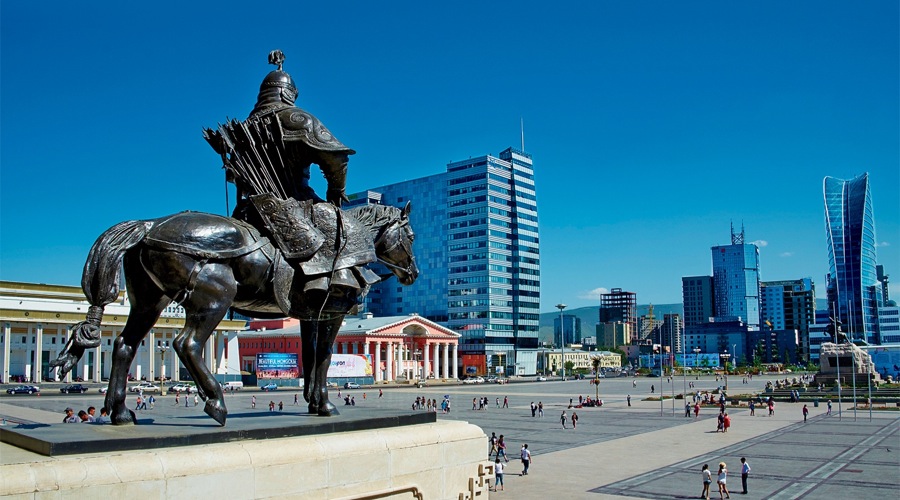
How distributor Filmbridge is taking on piracy in Mongolia while moving into production www.screendaily.com
Korean blockbuster Peninsula, Japanese anime Demon Slayer The Movie: Mugen Train and recent Cannes thriller Hunt, directed by and starring Squid Game’s Lee Jung-jae, are among almost 160 titles Filmbridge has released in Mongolia since the distribution company was launched in mid-2019.
“Not a lot of content made it to Mongolia legitimately before. The market was unregulated and infested with pirates,” says Filmbridge co-founder Tsogtbayar ‘Tsogo’ Namsrai. “Our goal is to bring in as much content as possible, giving audiences access to commercial foreign films in a legitimate way.”
Soon after the launch of the company, which is based in Mongolia’s capital Ulaanbaatar with offices in the US and Australia, came lengthy cinema closures due to the pandemic. “We turned Covid to our favour,” says Tsogo. “Cinemas became empty when Hollywood studios withdrew their films. We supported them with titles, helping them stay in business.”
It was during such rare circumstances without big Hollywood competition that Filmbridge mounted its first theatrical release, Korean zombie horror Peninsula, which became a runaway success in Mongolia. The company’s box-office hits now include action thriller Greenland, sci-fi disaster film Moonfall and Russian fantasy feature Upon Magic Roads, as well as Paramount kids titles Sonic The Hedgehog 2 and Clifford The Big Red Dog. It has also re-released classic titles such as The Godfather trilogy and The Lord Of The Rings trilogy.
A strong result was expected for Demon Slayer The Movie, but the pandemic cut short its release after five days. Still, the film was proof of the strong demand for popular Japanese anime among young Mongolians who queued through the night ahead of the film’s opening in the capital’s Imax theatre.
Despite a population of just 3 million people, the Mongolian market is youthful and growing. To better reach these audiences, Filmbridge has hired young marketing staff who are given free rein to promote the films in a way that can speak to their demographic. The company’s social media has been growing fast, with almost 40,000 Facebook followers to date.
Word of mouth
While all its releases come with Mongolian subtitles, Filmbridge has started to dub family animations, such as The Queen’s Corgi and Bigfoot Family, in the local language. “The dubbed animations have helped bring back a lot of families to cinemas,” says Tsogo.
Filmbridge has also gone to great lengths in legalising the market, taking pirates to court and educating the public that piracy is a crime. To make legitimate online viewings readily available, the company is set to launch SVoD streaming platform Filmax in the second half of 2023. It already has nearly 800 titles in its collection, including new films, library titles, documentaries, drama series and Japanese anime series.
The bulk of the collection is Korean content. “We have all the library titles from Contents Panda, K-Movie, Megabox and most of the titles from Lotte and CJ,” says Tsogo. “We also have all the library titles from Voltage Pictures.” In terms of new films, the company also has output deals with Contents Panda, K-Movie, Lotte, Lionsgate, STX Entertainment and Luminescence Film.
The Filmbridge co-founder is pleased the company’s effort has helped put Mongolia on the map as a standalone territory, claiming that “sales agents used to package us with Southeast Asia, but not anymore”. The company has invested in new free-to-air Popcorn TV Mongolia, taking up a 50% stake, and owns a 50% share in Animax Mongolia, a streaming platform that specialises in Japanese anime.
Tsogo has served as a producer on several Mongolian films including Remember Me, The Woman, The Gladiolus and Big Brother, which are represented by his sales company Mongol Films Distribution. He is now determined to initiate projects and fund them through Filmbridge. Its first project, suspense thriller Disorder by debut director B Batdelger, is in post-production for delivery next year, while a further two projects are in development.
“On the production side, our plan is to make five to 10 films a year,” adds Tsogo. “They will be commercial films made on low budgets but with good production values and content that can cross over and travel internationally.”
Filmbridge
Filmbridge
FilmBridge is a Mongolia film distributor. Created in 2019, and starting with Peninsula, they introduced indie cinema in the country, overwhelmed by studios propositions until then. They worked hard to clean the country from privacy, and introduced new marketing techniques towards a young population. They recently launched an OTT service in Mongolia, and their first production just wrapped.
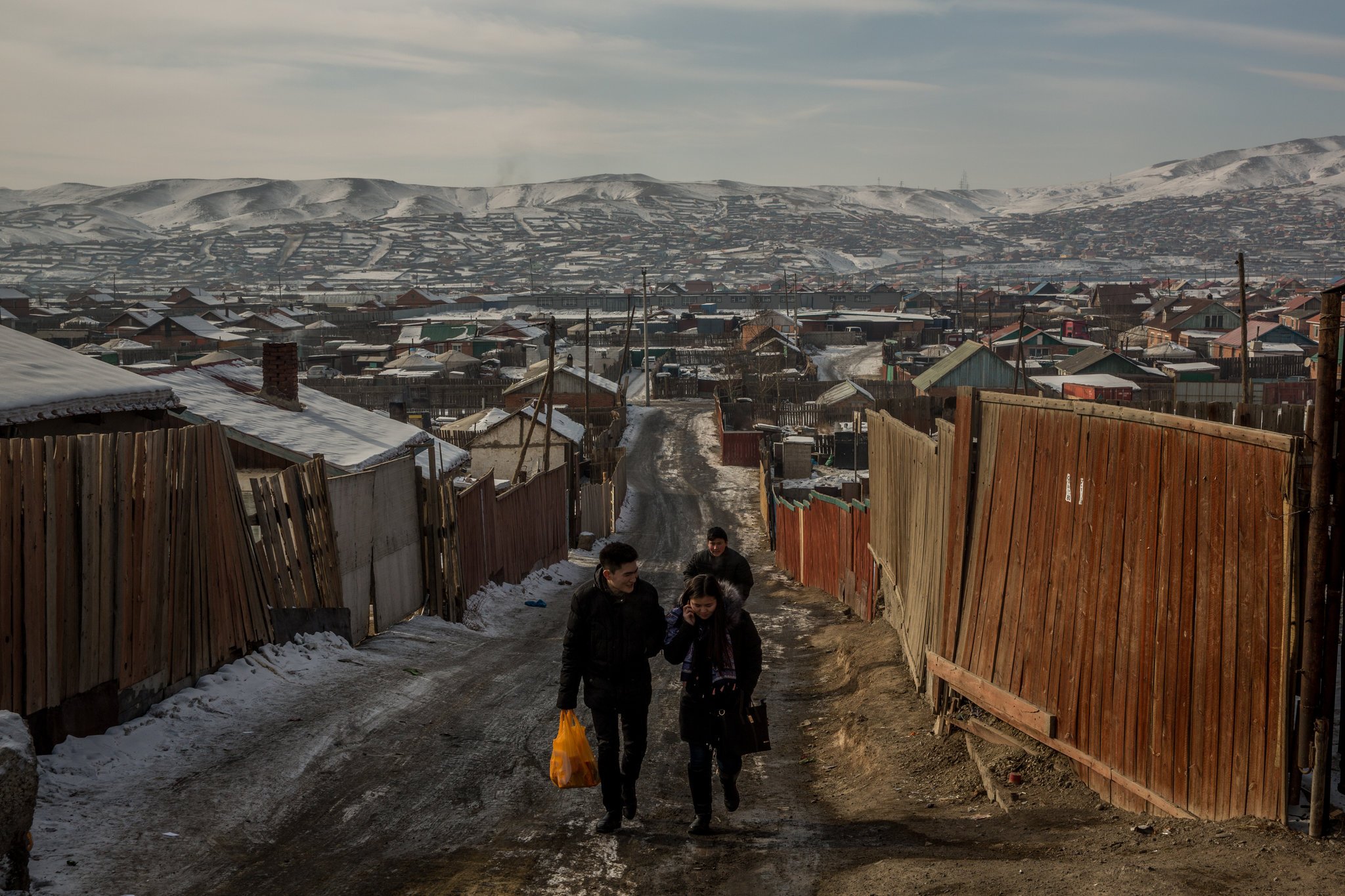
Mongolia consumers feel weight of inflation as food prices rise www.bne.eu
Each morning, food distributor Suren Bat-Tur goes to the Bars wholesale food market in Ulaanbaatar to purchase produce for resale. Lately, the mushrooms, coriander, tomatoes and other grocery items he buys have hit eye-watering prices.
“The cost of all my products just goes up and up, some items doubled compared to a year or two ago,” said Bat-Tur, 57. “For ordinary Mongolian buyers, they just cannot afford it anymore, so they buy 100 grams of oil and a few vegetables at a time.”
Mongolia’s consumer price index has averaged 15% over the past eight months amid mounting global headwinds. The coronavirus (COVID-19) lockdowns in Ulaanbaatar and the disappearance of foreign investors due to lockdowns hit the economy two years ago. Now China’s frequent border closures and Russia’s invasion of Ukraine are combining to escalate prices again.
Some of the biggest cost increases are in foods and non-alcoholic drinks, which have surged 22% this year, on top of an 11% rise last year, according to data compiled by the National Statistical Office. Health and medical services are up 18% this year and transportation costs rose 19%.
Consumer buying power took another blow last week when the country’s central bank announced that it had raised interest rates two percentage points to 12%. It’s the fourth time this year the Bank of Mongolia has hiked its policy interest rate, raising it by six percentage points.
“Persistently high inflation severely impacts on the real income of households, and deteriorates purchasing power,” said Sandagdorj Bold, senior economics officer for the Asian Development Bank (ADB) in Ulaanbaatar.
The rate hike will make borrowing more expensive but is designed to curb spending and slow the rising cost of goods. Or so the theory goes for central banks. But the solution is often more complicated and in the case of Mongolia, prices are usually determined by external forces.
“Relying only on monetary policy tightening to address inflation could be destabilising,” said Angana Banerji, the International Monetary Fund’s mission chief in Ulaanbaatar.
Strong fiscal consolidation, or policies that reduce debt, are also needed to support monetary policy efforts to contain inflation, she said.
Getting a handle on inflation would help alleviate stress on Mongolia’s poor and low-income households. Just buying basic foodstuffs has been a challenge for thousands of families, especially during China’s periodic border closures. Russia’s invasion of Ukraine has also pushed up prices due to soaring energy costs.
“We have increasing prices, imports are expensive, we feel it every day when the price of products is increasing,” said Bayanjargal Byambasaikhan, vice chair of the Business Council of Mongolia, a group of more than 200 businesses.
“At the same time, the tugrik is falling against the dollar and other currencies, and things you are seeing in different parts of the world are also real here. We will just have to survive through this wave with minimal damage," he said.
The value of the tugrik has sunk 17% this year to MNT3,330 to the dollar. Most of the currency’s losses occurred soon after Russia invaded Ukraine, but another round of declines began in September.
Foreign exchange reserves have also tumbled – from $4.4bn late last year to just $2.7bn as of the end of August, a 38% decline. That’s according to the central bank, which uses the reserves to stabilise currency swings – buying and selling the reserves as needed.
Mongolia is becoming increasingly reliant on loans and currency swaps from international lenders to make up for some of its economic losses, repay past debts, and plug budget deficits.
In 2017 the country received a $5.5bn IMF-led bailout to help with debt repayments. Lenders included the ADB, the World Bank, Japan, and Korea. Mongolia also has a $2.2bn currency swap with China’s Central Bank.
And the loans keep coming – in August the ADB approved a $100mn emergency loan. Mongolia’s general government debt as a percentage of GDP has growm to 82% according to World Bank data, up from 61% in 2019.
“Mongolia has been struggling with high debt and has experienced widening macroeconomic imbalances, rapid weakening of exchange rates and soaring domestic inflation,” according to The World Bank’s East Asia and Pacific Economic October Update.
Among the lenders, Mongolia’s debt to China is the most politically sensitive – protesters periodically set up tents on Sukhbaatar Square in the heart of Ulaanbaatar to rally against their government’s economic policies and debts to China.
The fear is that Mongolia will only be able to repay its debts with its land and resources, said a protester named Zorig, giving only his first name. “We don’t have anything else to give them,” said Zorig, speaking of China. “So they are going to take our land,” he said.
Fears of a Chinese takeover are long-standing, but the rising cost of goods is the more immediate threat for families struggling to get by.
Cutting consumption is a typical response, said Bold from the ADB, as low-income households are likely to be more indebted and have nothing socked away in their savings deposits.
Signs of the skyrocketing prices are evident in the shops of Ulaanbaatar and on its streets. At a currency exchange office downtown, the whir of electronic banknote counters fills the air as money changers swap dollars, euros, rubles, yuan and other currencies for tugriks.
Every few hours, the currency traders adjust the value of the Mongolian currency, usually in a downward trajectory.
“It’s unfortunate and it makes our business more difficult and less profitable when the currency changes a lot,” said Tognyam Doljin, a currency trader inside one of the kiosks.
The tugrik’s perpetual slide is the result of several factors, said Doljin. Russia’s invasion of Ukraine and the subsequent disruption to the global economy has been the biggest factor in this year of economic challenges, but the problems don’t end there.
Demand for the tugrik also softens in times of instability, she said, as individuals and businesses switch to dollars as a hedge against sudden downward movements. Dollars are also handy for paying off loans and debts. But dollars can sometimes be hard to find if the central bank is not releasing foreign reserves, she said.
The interest rate hike by the US Federal Reserve was another factor that has rattled currency markets in the Mongolian capital, said Doljin. And then there are the frequent border closures with China that disrupt trade.
“All this is driving up prices for everything and people’s salaries aren't high enough to keep up,” said Doljin. “I am getting by because I have some income but there’s a lot of out-of-work people who are severely affected.”
Soaring inflation and the declining value of the currency can be hard to swallow when most salaries are around MNT500,000 to MNT600,000 tugrik ($154-185) a month, according to data compiled by the Statistical Office. According to the World Bank, the bottom 20% of the population spends 40% of their consumption on food.
Traditional monetary policy instruments such as increasing the policy rate to fight inflation are questionable when the source of the problem is primarily external factors, said ADB’s Bold. But Ulaanbaatar has taken additional steps to fend off price rises, he said.
Authorities have also focused on increasing the supply of essential goods, including food, fuel and gasoline, and using tax relief or exemption measures. An agreement with Russia’s Rosneft in July to purchase wholesale gasoline at up to 35% below market prices has helped tamp down prices for drivers at the pump.
Banerji from the IMF says an “equitable way” to fund education, health and infrastructure projects is through progressive personal income taxation. That may not sit well with upper-income Mongolians but most would agree it’s time to address the wealth gap and increase taxes on those who have benefited the most from Mongolia’s mining sector, the main source of the country’s foreign earned revenue.
Where Mongolia goes from here isn’t clear, as long as instability persists in international markets. That is reflected in the outlook for its gross domestic product (GDP) – the ADB is forecasting 1.7% growth this year, down from an April projection of 2.3%.
The World Bank is a little more optimistic with a forecast for this year of 2.4% growth.
ADB’s forecast for next year has also been lowered to 4.9% from 5.6%. Mongolia’s GDP growth last year was 1.4%, compared to pre-pandemic growth of 5.6%.
ADB cites prolonged border restrictions, deterioration of purchasing power under high inflation, high borrowing costs, and a likely decline in the availability of credit as a few reasons for the reduced forecast.
Back at the Bars Market, Bat-Tur inspects piles of apples and potatoes, stacks of bok choy and cabbage. He’s looking at prices to compile an offer for a local hotel that issues monthly contracts for food and produce. Prices rose again in September and he made the necessary changes for his offer.
Bat-Tur passes along price increases to his buyers, who then increase their prices to consumers, making for a disgruntled populace. “It’s very stressful. People are angry, they don’t have enough money for groceries and don’t know what to do,” he said.
But he doesn’t see much that Mongolia can do to keep prices down, as most of it is based on imported goods from Russia and China.
“We Mongolians can’t do much about inflation,” said Bat-Tur. “Everything depends on global events, things happening in Russia and China. It could be years before things start to improve because these problems outside aren’t ending soon.”
By Michael Kohn

Mongolia records 69 coronavirus cases in past 24h www.akipress.com
69 new coronavirus cases were recorded in Mongolia in past 24 hours.
33 of them contacts in Ulaanbaatar, and 36 were registered in the regions. No imported cases were found.
2,131 patients in total have died from COVID-19 since the beginning of the pandemic.
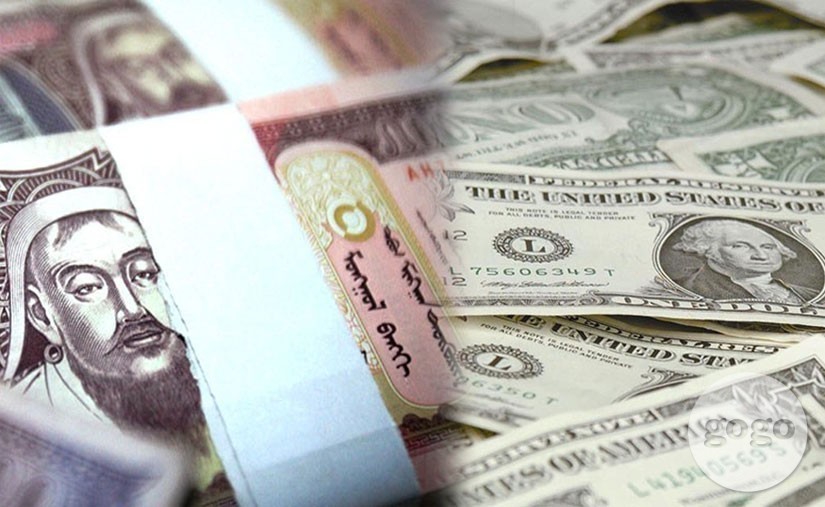
Measures to be taken to increase foreign exchange reserves www.montsame.mn
At its regular meeting, October 5, the Cabinet made a resolution to take the following measures in order to increase the foreign exchange reserves.
The measures include the issuance of electronic payment receipts to all stages of mineral extraction, processing and transportation; introduction of a system for determining the origin of products by registering all related contracts in the unified tax system within the fourth quarter of 2022, introduction of a system for electronic customs clearance. Mining activities will only be conducted by using this system from the first day of 2023, and in case of not being registered in the electronic system, they shall not be allowed for export.
The resolution also states that automatic customs clearance system, coal testing laboratory and smart gateway facilities will be put into operation at Shiveekhuren port in 2022, Gashuunsukhait and Zamyn-Uud ports in the third quarter of 2023. It will enable to carry out laboratory tests quickly at the border, automatically record the test results in the customs clearance and transfer the results to the system promptly.
By implementing reforms of the system for increasing the country’s foreign exchange reserves and measures to increase real foreign exchange earnings from exports in the short and medium term, it is considered that the sale of minerals will become transparent, it will become possible to trade resources at international prices, registration of electronic receipts will be made at all stages from extraction to export, the system will be introduced for automatic performance of mineral analysis conclusions and customs clearance, and there will be a possibility to increase the country’s foreign exchange reserves.
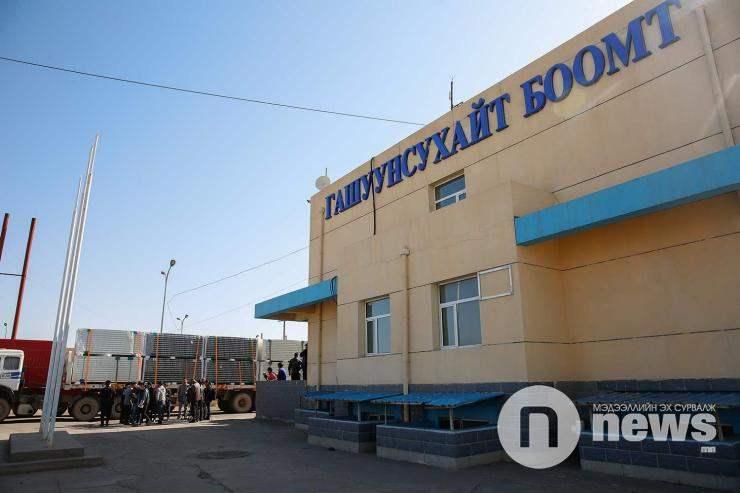
Border port administrations to be operated in Selenge, Dornod, Dornogobi and Umnugobi aimags www.montsame.mn
At the cabinet meeting today, it was decided to operate border port administrations in Selenge, Dornod, Dornogobi and Umnugobi aimags and approved the staff and functions of the administrations.
The border port administration will be responsible for:
-Working to increase the export and import of mineral resources, oil and goods as well as trade turnover;
-Providing infection control, law enforcement and border control organizations and local governments with integrated coordination;
-Planning the development of the port, managing issues regarding housing, electricity, heat, clean and dirty water and other infrastructure, and creating conditions for the normal operation of the port;
- And registering and controlling state properties at the border port.
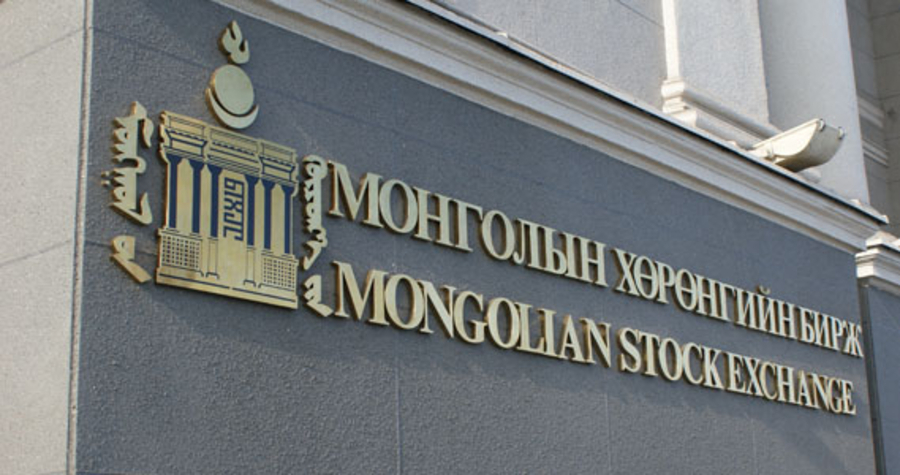
FTSE Russell approves to add the stock market of Mongolia in 'Frontier market' classification www.montsame.mn
On September 29, the FTSE Russell Group, a subsidiary of London Stock Exchange Group (LSEG), sent an official letter to Kh. Altai, the Chief Executive Director of the Mongolian Stock Exchange, about confirming the stock market of Mongolia in the 'Frontier Market' classification.
According to the FTSE RUSSELL, the stock market of Mongolia has fully met the criteria for FTSE Russell's 'Frontier Market' classification and will be added in this classification from the September, 2023.
Mongolia was first placed on the 'Frontier Markets Watch List' classification of FTSE Russell in 2012. But, in 2017, Mongolia was removed from the 'Watch List' without added in Emerging Market Countries due to reasons such as failure to meet regulatory standards for the Mongolia Stock exchange (MSE) and a lack of global custodians in country.
Since then, the Mongolian stock exchange cooperated with the Financial Regulatory Commission and other infrastructure organizations in order to bring the domestic capital market to international market status. Thus, in September 2021, FTSE Russell officially re-added Mongolia in the 'Watch List' of the 'Frontier market' classification.
The Mongolian Stock Exchange reported that the international recognition of our country's stock market is important for attracting international investment, increasing market trading activity and liquidity, and accelerating development.
The subsidiary classifies international markets into 4 main levels from 'Developing' to 'Highly Developed' based on a number of technical criteria set by professional investors. As of September 2022, 29 countries, including Bulgaria, Estonia, Kazakhstan, Latvia, Lithuania, and Vietnam, are included in the 'Emerging Market' category.

Coal exports doubled www.montsame.mn
Mongolia exports an average of 1,304 trucks of coal per day. On September 23-29, a total of 363 containers of coal crossed the border, according to the Ministry of Mining and Heavy Industry.
During the reference period, Mongolia exported 1,014,100 tons of coal, increased by 214.5 percent or doubled from the same period of the previous year. Since the beginning of the year, 18,807,200 tons of coal has been exported, increased by 6,448,500 tons or 52 percent compared to the same period of the previous year. Thus, the performance of coal export has exceeded the plan.
Since the beginning of the year, 1,091,200 tons of copper concentrate has been exported, showing a 7 percent increase from the same period of the previous year.
As for iron ore and concentrates, a total of 3,154,100 tons were exported from the beginning of the year, which decreased by 47 percent from the same period of the previous year.
As of September 29, the Bank of Mongolia has purchased 14.81 tons of gold since the beginning of the year.

Signing of Record of Discussions on Technical Cooperation Project with Mongolia: Project for Development of Human Resources in Cybersecurity www.jica.go.jp
On October 4, the Japan International Cooperation Agency (JICA) signed a Record of Discussions with the Government of Mongolia in Ulaanbaatar for the Project for Development of Human Resources in Cybersecurity, a technical cooperation project.
The aim of the project is to improve cybersecurity education in Mongolia and promote a secure digital society within the country. It will do so by establishing an industry-academia-government collaborative network for cybersecurity human resource development and implementing education programs in the field for students, current lecturers, and public servants. The project will contribute to the achievement of SDGs Goals 4 (Quality education) and 9 (Industry, innovation and infrastructure).
- «
- 1
- 2
- 3
- 4
- 5
- 6
- 7
- 8
- 9
- 10
- 11
- 12
- 13
- 14
- 15
- 16
- 17
- 18
- 19
- 20
- 21
- 22
- 23
- 24
- 25
- 26
- 27
- 28
- 29
- 30
- 31
- 32
- 33
- 34
- 35
- 36
- 37
- 38
- 39
- 40
- 41
- 42
- 43
- 44
- 45
- 46
- 47
- 48
- 49
- 50
- 51
- 52
- 53
- 54
- 55
- 56
- 57
- 58
- 59
- 60
- 61
- 62
- 63
- 64
- 65
- 66
- 67
- 68
- 69
- 70
- 71
- 72
- 73
- 74
- 75
- 76
- 77
- 78
- 79
- 80
- 81
- 82
- 83
- 84
- 85
- 86
- 87
- 88
- 89
- 90
- 91
- 92
- 93
- 94
- 95
- 96
- 97
- 98
- 99
- 100
- 101
- 102
- 103
- 104
- 105
- 106
- 107
- 108
- 109
- 110
- 111
- 112
- 113
- 114
- 115
- 116
- 117
- 118
- 119
- 120
- 121
- 122
- 123
- 124
- 125
- 126
- 127
- 128
- 129
- 130
- 131
- 132
- 133
- 134
- 135
- 136
- 137
- 138
- 139
- 140
- 141
- 142
- 143
- 144
- 145
- 146
- 147
- 148
- 149
- 150
- 151
- 152
- 153
- 154
- 155
- 156
- 157
- 158
- 159
- 160
- 161
- 162
- 163
- 164
- 165
- 166
- 167
- 168
- 169
- 170
- 171
- 172
- 173
- 174
- 175
- 176
- 177
- 178
- 179
- 180
- 181
- 182
- 183
- 184
- 185
- 186
- 187
- 188
- 189
- 190
- 191
- 192
- 193
- 194
- 195
- 196
- 197
- 198
- 199
- 200
- 201
- 202
- 203
- 204
- 205
- 206
- 207
- 208
- 209
- 210
- 211
- 212
- 213
- 214
- 215
- 216
- 217
- 218
- 219
- 220
- 221
- 222
- 223
- 224
- 225
- 226
- 227
- 228
- 229
- 230
- 231
- 232
- 233
- 234
- 235
- 236
- 237
- 238
- 239
- 240
- 241
- 242
- 243
- 244
- 245
- 246
- 247
- 248
- 249
- 250
- 251
- 252
- 253
- 254
- 255
- 256
- 257
- 258
- 259
- 260
- 261
- 262
- 263
- 264
- 265
- 266
- 267
- 268
- 269
- 270
- 271
- 272
- 273
- 274
- 275
- 276
- 277
- 278
- 279
- 280
- 281
- 282
- 283
- 284
- 285
- 286
- 287
- 288
- 289
- 290
- 291
- 292
- 293
- 294
- 295
- 296
- 297
- 298
- 299
- 300
- 301
- 302
- 303
- 304
- 305
- 306
- 307
- 308
- 309
- 310
- 311
- 312
- 313
- 314
- 315
- 316
- 317
- 318
- 319
- 320
- 321
- 322
- 323
- 324
- 325
- 326
- 327
- 328
- 329
- 330
- 331
- 332
- 333
- 334
- 335
- 336
- 337
- 338
- 339
- 340
- 341
- 342
- 343
- 344
- 345
- 346
- 347
- 348
- 349
- 350
- 351
- 352
- 353
- 354
- 355
- 356
- 357
- 358
- 359
- 360
- 361
- 362
- 363
- 364
- 365
- 366
- 367
- 368
- 369
- 370
- 371
- 372
- 373
- 374
- 375
- 376
- 377
- 378
- 379
- 380
- 381
- 382
- 383
- 384
- 385
- 386
- 387
- 388
- 389
- 390
- 391
- 392
- 393
- 394
- 395
- 396
- 397
- 398
- 399
- 400
- 401
- 402
- 403
- 404
- 405
- 406
- 407
- 408
- 409
- 410
- 411
- 412
- 413
- 414
- 415
- 416
- 417
- 418
- 419
- 420
- 421
- 422
- 423
- 424
- 425
- 426
- 427
- 428
- 429
- 430
- 431
- 432
- 433
- 434
- 435
- 436
- 437
- 438
- 439
- 440
- 441
- 442
- 443
- 444
- 445
- 446
- 447
- 448
- 449
- 450
- 451
- 452
- 453
- 454
- 455
- 456
- 457
- 458
- 459
- 460
- 461
- 462
- 463
- 464
- 465
- 466
- 467
- 468
- 469
- 470
- 471
- 472
- 473
- 474
- 475
- 476
- 477
- 478
- 479
- 480
- 481
- 482
- 483
- 484
- 485
- 486
- 487
- 488
- 489
- 490
- 491
- 492
- 493
- 494
- 495
- 496
- 497
- 498
- 499
- 500
- 501
- 502
- 503
- 504
- 505
- 506
- 507
- 508
- 509
- 510
- 511
- 512
- 513
- 514
- 515
- 516
- 517
- 518
- 519
- 520
- 521
- 522
- 523
- 524
- 525
- 526
- 527
- 528
- 529
- 530
- 531
- 532
- 533
- 534
- 535
- 536
- 537
- 538
- 539
- 540
- 541
- 542
- 543
- 544
- 545
- 546
- 547
- 548
- 549
- 550
- 551
- 552
- 553
- 554
- 555
- 556
- 557
- 558
- 559
- 560
- 561
- 562
- 563
- 564
- 565
- 566
- 567
- 568
- 569
- 570
- 571
- 572
- 573
- 574
- 575
- 576
- 577
- 578
- 579
- 580
- 581
- 582
- 583
- 584
- 585
- 586
- 587
- 588
- 589
- 590
- 591
- 592
- 593
- 594
- 595
- 596
- 597
- 598
- 599
- 600
- 601
- 602
- 603
- 604
- 605
- 606
- 607
- 608
- 609
- 610
- 611
- 612
- 613
- 614
- 615
- 616
- 617
- 618
- 619
- 620
- 621
- 622
- 623
- 624
- 625
- 626
- 627
- 628
- 629
- 630
- 631
- 632
- 633
- 634
- 635
- 636
- 637
- 638
- 639
- 640
- 641
- 642
- 643
- 644
- 645
- 646
- 647
- 648
- 649
- 650
- 651
- 652
- 653
- 654
- 655
- 656
- 657
- 658
- 659
- 660
- 661
- 662
- 663
- 664
- 665
- 666
- 667
- 668
- 669
- 670
- 671
- 672
- 673
- 674
- 675
- 676
- 677
- 678
- 679
- 680
- 681
- 682
- 683
- 684
- 685
- 686
- 687
- 688
- 689
- 690
- 691
- 692
- 693
- 694
- 695
- 696
- 697
- 698
- 699
- 700
- 701
- 702
- 703
- 704
- 705
- 706
- 707
- 708
- 709
- 710
- 711
- 712
- 713
- 714
- 715
- 716
- 717
- 718
- 719
- 720
- 721
- 722
- 723
- 724
- 725
- 726
- 727
- 728
- 729
- 730
- 731
- 732
- 733
- 734
- 735
- 736
- 737
- 738
- 739
- 740
- 741
- 742
- 743
- 744
- 745
- 746
- 747
- 748
- 749
- 750
- 751
- 752
- 753
- 754
- 755
- 756
- 757
- 758
- 759
- 760
- 761
- 762
- 763
- 764
- 765
- 766
- 767
- 768
- 769
- 770
- 771
- 772
- 773
- 774
- 775
- 776
- 777
- 778
- 779
- 780
- 781
- 782
- 783
- 784
- 785
- 786
- 787
- 788
- 789
- 790
- 791
- 792
- 793
- 794
- 795
- 796
- 797
- 798
- 799
- 800
- 801
- 802
- 803
- 804
- 805
- 806
- 807
- 808
- 809
- 810
- 811
- 812
- 813
- 814
- 815
- 816
- 817
- 818
- 819
- 820
- 821
- 822
- 823
- 824
- 825
- 826
- 827
- 828
- 829
- 830
- 831
- 832
- 833
- 834
- 835
- 836
- 837
- 838
- 839
- 840
- 841
- 842
- 843
- 844
- 845
- 846
- 847
- 848
- 849
- 850
- 851
- 852
- 853
- 854
- 855
- 856
- 857
- 858
- 859
- 860
- 861
- 862
- 863
- 864
- 865
- 866
- 867
- 868
- 869
- 870
- 871
- 872
- 873
- 874
- 875
- 876
- 877
- 878
- 879
- 880
- 881
- 882
- 883
- 884
- 885
- 886
- 887
- 888
- 889
- 890
- 891
- 892
- 893
- 894
- 895
- 896
- 897
- 898
- 899
- 900
- 901
- 902
- 903
- 904
- 905
- 906
- 907
- 908
- 909
- 910
- 911
- 912
- 913
- 914
- 915
- 916
- 917
- 918
- 919
- 920
- 921
- 922
- 923
- 924
- 925
- 926
- 927
- 928
- 929
- 930
- 931
- 932
- 933
- 934
- 935
- 936
- 937
- 938
- 939
- 940
- 941
- 942
- 943
- 944
- 945
- 946
- 947
- 948
- 949
- 950
- 951
- 952
- 953
- 954
- 955
- 956
- 957
- 958
- 959
- 960
- 961
- 962
- 963
- 964
- 965
- 966
- 967
- 968
- 969
- 970
- 971
- 972
- 973
- 974
- 975
- 976
- 977
- 978
- 979
- 980
- 981
- 982
- 983
- 984
- 985
- 986
- 987
- 988
- 989
- 990
- 991
- 992
- 993
- 994
- 995
- 996
- 997
- 998
- 999
- 1000
- 1001
- 1002
- 1003
- 1004
- 1005
- 1006
- 1007
- 1008
- 1009
- 1010
- 1011
- 1012
- 1013
- 1014
- 1015
- 1016
- 1017
- 1018
- 1019
- 1020
- 1021
- 1022
- 1023
- 1024
- 1025
- 1026
- 1027
- 1028
- 1029
- 1030
- 1031
- 1032
- 1033
- 1034
- 1035
- 1036
- 1037
- 1038
- 1039
- 1040
- 1041
- 1042
- 1043
- 1044
- 1045
- 1046
- 1047
- 1048
- 1049
- 1050
- 1051
- 1052
- 1053
- 1054
- 1055
- 1056
- 1057
- 1058
- 1059
- 1060
- 1061
- 1062
- 1063
- 1064
- 1065
- 1066
- 1067
- 1068
- 1069
- 1070
- 1071
- 1072
- 1073
- 1074
- 1075
- 1076
- 1077
- 1078
- 1079
- 1080
- 1081
- 1082
- 1083
- 1084
- 1085
- 1086
- 1087
- 1088
- 1089
- 1090
- 1091
- 1092
- 1093
- 1094
- 1095
- 1096
- 1097
- 1098
- 1099
- 1100
- 1101
- 1102
- 1103
- 1104
- 1105
- 1106
- 1107
- 1108
- 1109
- 1110
- 1111
- 1112
- 1113
- 1114
- 1115
- 1116
- 1117
- 1118
- 1119
- 1120
- 1121
- 1122
- 1123
- 1124
- 1125
- 1126
- 1127
- 1128
- 1129
- 1130
- 1131
- 1132
- 1133
- 1134
- 1135
- 1136
- 1137
- 1138
- 1139
- 1140
- 1141
- 1142
- 1143
- 1144
- 1145
- 1146
- 1147
- 1148
- 1149
- 1150
- 1151
- 1152
- 1153
- 1154
- 1155
- 1156
- 1157
- 1158
- 1159
- 1160
- 1161
- 1162
- 1163
- 1164
- 1165
- 1166
- 1167
- 1168
- 1169
- 1170
- 1171
- 1172
- 1173
- 1174
- 1175
- 1176
- 1177
- 1178
- 1179
- 1180
- 1181
- 1182
- 1183
- 1184
- 1185
- 1186
- 1187
- 1188
- 1189
- 1190
- 1191
- 1192
- 1193
- 1194
- 1195
- 1196
- 1197
- 1198
- 1199
- 1200
- 1201
- 1202
- 1203
- 1204
- 1205
- 1206
- 1207
- 1208
- 1209
- 1210
- 1211
- 1212
- 1213
- 1214
- 1215
- 1216
- 1217
- 1218
- 1219
- 1220
- 1221
- 1222
- 1223
- 1224
- 1225
- 1226
- 1227
- 1228
- 1229
- 1230
- 1231
- 1232
- 1233
- 1234
- 1235
- 1236
- 1237
- 1238
- 1239
- 1240
- 1241
- 1242
- 1243
- 1244
- 1245
- 1246
- 1247
- 1248
- 1249
- 1250
- 1251
- 1252
- 1253
- 1254
- 1255
- 1256
- 1257
- 1258
- 1259
- 1260
- 1261
- 1262
- 1263
- 1264
- 1265
- 1266
- 1267
- 1268
- 1269
- 1270
- 1271
- 1272
- 1273
- 1274
- 1275
- 1276
- 1277
- 1278
- 1279
- 1280
- 1281
- 1282
- 1283
- 1284
- 1285
- 1286
- 1287
- 1288
- 1289
- 1290
- 1291
- 1292
- 1293
- 1294
- 1295
- 1296
- 1297
- 1298
- 1299
- 1300
- 1301
- 1302
- 1303
- 1304
- 1305
- 1306
- 1307
- 1308
- 1309
- 1310
- 1311
- 1312
- 1313
- 1314
- 1315
- 1316
- 1317
- 1318
- 1319
- 1320
- 1321
- 1322
- 1323
- 1324
- 1325
- 1326
- 1327
- 1328
- 1329
- 1330
- 1331
- 1332
- 1333
- 1334
- 1335
- 1336
- 1337
- 1338
- 1339
- 1340
- 1341
- 1342
- 1343
- 1344
- 1345
- 1346
- 1347
- 1348
- 1349
- 1350
- 1351
- 1352
- 1353
- 1354
- 1355
- 1356
- 1357
- 1358
- 1359
- 1360
- 1361
- 1362
- 1363
- 1364
- 1365
- 1366
- 1367
- 1368
- 1369
- 1370
- 1371
- 1372
- 1373
- 1374
- 1375
- 1376
- 1377
- 1378
- 1379
- 1380
- 1381
- 1382
- 1383
- 1384
- 1385
- 1386
- 1387
- 1388
- 1389
- 1390
- 1391
- 1392
- 1393
- 1394
- 1395
- 1396
- 1397
- 1398
- 1399
- 1400
- 1401
- 1402
- 1403
- 1404
- 1405
- 1406
- 1407
- 1408
- 1409
- 1410
- 1411
- 1412
- 1413
- 1414
- 1415
- 1416
- 1417
- 1418
- 1419
- 1420
- 1421
- 1422
- 1423
- 1424
- 1425
- 1426
- 1427
- 1428
- 1429
- 1430
- 1431
- 1432
- 1433
- 1434
- 1435
- 1436
- 1437
- 1438
- 1439
- 1440
- 1441
- 1442
- 1443
- 1444
- 1445
- 1446
- 1447
- 1448
- 1449
- 1450
- 1451
- 1452
- 1453
- 1454
- 1455
- 1456
- 1457
- 1458
- 1459
- 1460
- 1461
- 1462
- 1463
- 1464
- 1465
- 1466
- 1467
- 1468
- 1469
- 1470
- 1471
- 1472
- 1473
- 1474
- 1475
- 1476
- 1477
- 1478
- 1479
- 1480
- 1481
- 1482
- 1483
- 1484
- 1485
- 1486
- 1487
- 1488
- 1489
- 1490
- 1491
- 1492
- 1493
- 1494
- 1495
- 1496
- 1497
- 1498
- 1499
- 1500
- 1501
- 1502
- 1503
- 1504
- 1505
- 1506
- 1507
- 1508
- 1509
- 1510
- 1511
- 1512
- 1513
- 1514
- 1515
- 1516
- 1517
- 1518
- 1519
- 1520
- 1521
- 1522
- 1523
- 1524
- 1525
- 1526
- 1527
- 1528
- 1529
- 1530
- 1531
- 1532
- 1533
- 1534
- 1535
- 1536
- 1537
- 1538
- 1539
- 1540
- 1541
- 1542
- 1543
- 1544
- 1545
- 1546
- 1547
- 1548
- 1549
- 1550
- 1551
- 1552
- 1553
- 1554
- 1555
- 1556
- 1557
- 1558
- 1559
- 1560
- 1561
- 1562
- 1563
- 1564
- 1565
- 1566
- 1567
- 1568
- 1569
- 1570
- 1571
- 1572
- 1573
- 1574
- 1575
- 1576
- 1577
- 1578
- 1579
- 1580
- 1581
- 1582
- 1583
- 1584
- 1585
- 1586
- 1587
- 1588
- 1589
- 1590
- 1591
- 1592
- 1593
- 1594
- 1595
- 1596
- 1597
- 1598
- 1599
- 1600
- 1601
- 1602
- 1603
- 1604
- 1605
- 1606
- 1607
- 1608
- 1609
- 1610
- 1611
- 1612
- 1613
- 1614
- 1615
- 1616
- 1617
- 1618
- 1619
- 1620
- 1621
- 1622
- 1623
- 1624
- 1625
- 1626
- 1627
- 1628
- 1629
- 1630
- 1631
- 1632
- »






